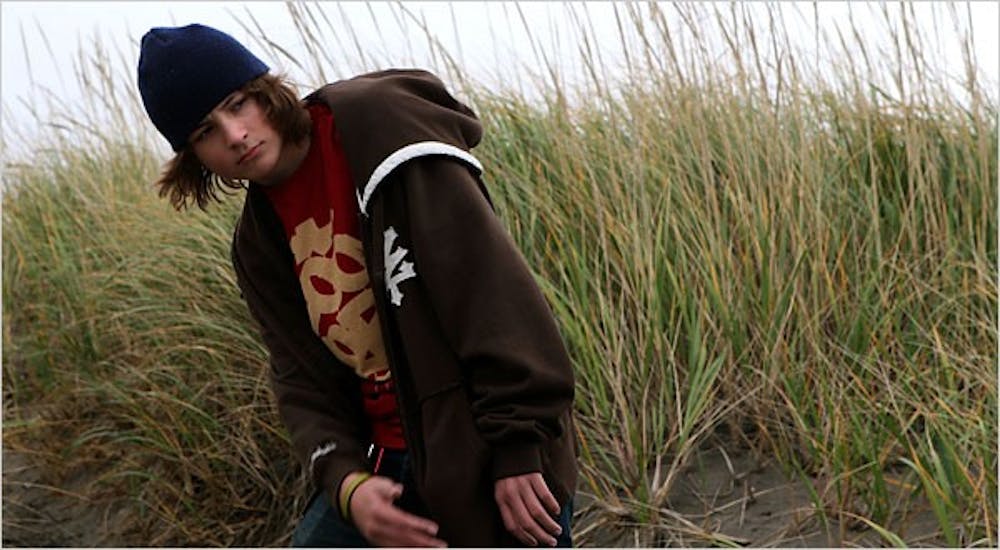Coming off what some people have dubbed his death trilogy (“Gerry,” “Elephant,” “Last Days”), you’d think Gus Van Sant might have moved on to lighter fare. But not so. His latest film, “Paranoid Park,” is just as contemplative, brooding and ultimately disturbing as his other recent films, but it succeeds in some ways that his previous efforts failed. Still, “Paranoid Park” falls victim to what is becoming Van Sant’s tragic flaw as a filmmaker: His complete and total inability to censor his sometimes irritating indulgences.
The film peers into the world of Alex, a teenage skateboarder, as he lethargically confronts the usual high school conflicts and then gets unwillingly entangled in the death of a security guard. As he did in “Elephant,” Van Sant uses mostly young non-actors and, predictably, the results are mixed. Gabe Nevins’ portrayal of Alex gets at exactly what Van Sant is going for: He plays a character so consumed by teenage uncertainty that the viewer’s distance from him often feels downright voyeuristic. There are moments, as Nevins stumbles over the words that he reads back from his journal in a voiceover, that the teens in the film feel so real that “Paranoid Park” seems to transcend cinematic realism and move into a whole new realm of reality. And then there are the jarring moments when, thanks to some horribly self-conscious acting, it all falls apart and becomes aggravating.
“Paranoid Park” is a film caught entirely between extremes. Van Sant juxtaposes this voyeuristic realism with moments that can only be described as hyper-cinematic – glossy, slow-motion shots accompanied by bombastic music – viewing the same familiar characters under a completely different lens. This technique is both surprising and interesting at first, but it loses its impact completely as Van Sant repeats it ad nauseam throughout the rest of the film. Even in the end, it’s unclear why he does this. Since it takes the viewer out of the story, he would have been better off choosing one extreme and sticking with it.
However, there are other extremes in the film that do work. The Super-8 slow-motion skateboarding shots are hypnotizing and beautiful; we rarely see Alex skate in the film, but we are able to share in his dream-like gaze upon his peers who are actually confident enough to put their skills on display. Also, Van Sant’s soundtrack is incredibly varied and referential. He mixes Beethoven and Nino Rota’s music from the 1965 film “Juliet of the Spirits” with songs by Elliot Smith, a Van Sant soundtrack staple. In fact, his use of the song “Angeles” almost feels like a reference to his memorable use of it in his own 1997 film, “Good Will Hunting.” This is interesting, since “Paranoid Park” and “Good Will Hunting” represent another set of extremes – those of Van Sant’s career. “Good Will Hunting” is the better film because there was someone there telling Van Sant that he probably shouldn’t be throwing an onion and a handful of jellybeans and a pound of veal all into the same stew. He tries to do too much in “Paranoid Park” – he doesn’t know where to stop, and then the film as a whole suffers.
There are, however, parts of this film that are pitch perfect and absolutely beautiful, but it’s weighed down by the moments that are not. Still, “Paranoid Park” finds Van Sant on the right track. By the film’s end, he will make you feel vulnerable, moody and introspective, but the triumph is that, unlike with some of his other recent films, he will make you feel something.





